Review: Three Fictional Non-Fiction Books from Osprey
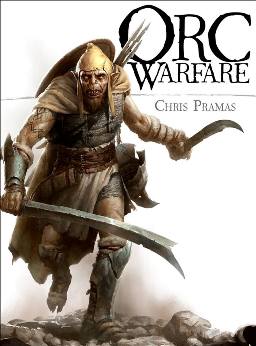
Kurtzhau – aged 11 – squees. “It’s got all the tropes. They’ve obviously read Scott Westerfield…!”
I’ve just unpacked Osprey’s Steampunk Soldiers: Uniforms and Weapons from the Age of Steam, one of three review copies acquired as a result of me ruthlessly parlaying a short story gig – Frostgrave tabletop game, coming soon, it rocks – into a pipeline of free books to review.
OK — Whoop! Whoop! Whoop! — moral hazard! Integrity in heroic book reviewing! Disclaimer! I wrote a short story for Osprey. I’d love to write a book for them. However, the reason I want to do all this is because Osprey rock. So bearing that in mind, read on.
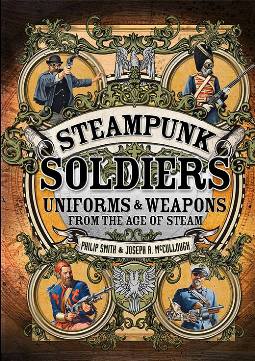
I received three books from Osprey.
Steampunk, The Wars of Atlantis (coming July 21) and Orc Warfare (coming June 23).
They are odd.
Not as odd as the stand of Osprey books I once spotted in a local store…. It turned out that the manager of the History Department hated the books and would only reorder to fill gaps created by sales.
When the stand first went up, the military history gannets swooped and grabbed all the Templars/Waffen SS at War type books, and everything else with tanks and siege machines on the cover, leaving only the 10% of weird nerdy titles like German Civilian Police 1935-45, and Swiss Catering Corps 1866 (I made that one up).
So the manager filled the resulting gap with a random selection of books. 10% of these were yet more nerdy titles that did not sell. Fast forward a couple of years, and you have stand of possibly the most odd but boring military history titles in history.
Great, though, if you want to know about 19th century West Swabian Militia Civilian Servant Uniforms…
These books, in contrast, are odd, but not boring odd. They are odd because they are entirely made up and aimed squarely at tabletop gamers, without committing to a particular system.
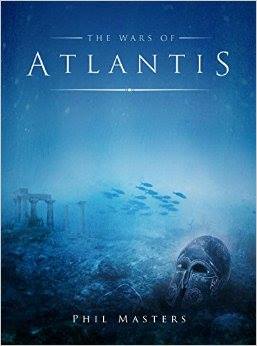
Atlantis purports to be a campaign history of the clash between the Atlantans and the Mediterranean peoples including the proto Athenians, as recorded in Plato and Diodorus Siculus. Steampunk Soldiers claims to document the British Imperial forces in a steampunk 19th century. And Orc is pretty much a military history of orcs.
On the face of it, these are in the same league as the spoof Tie-Fighter manual or innumerable coffee-table books with cool illustrations and puff text; you know the kind of thing, Dinosaurs in the 21st century, or A Spotter’s Guide to Ninja Fairies.
However, these Osprey books are in fact quite different from the novelty output of book packagers.
Of the three, only Steampunk is really a coffee-table style book of illustrations with commentary. The other two have nice illustrations, but they really are illustrating the text. That’s the thing about all three of these books; the text is king.
Each kicks off by establishing its premise.
Atlantis names its historical sources, then with a deadpan wink, cites the formerly lost Atlantan archive. Steampunk claims to be a publication of newly discovered pictures and notes by a well-travelled artist, covering the period when meteorite-sourced hephaestium dominated our technology.
Only Orc takes the honest approach, to paraphrase: What the heck, let’s do an Osprey book as if Orks were real.
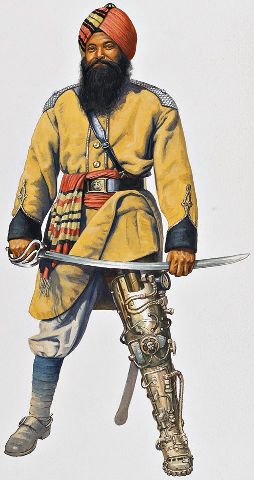
Each then settles back and delivers its content without nudge and wink, and here’s where they really stand out. The writers are obviously very well-informed about general military history and the period in question. The result is spurious history that feels authentic.
Atlantis traces the rise and fall of that civilisation, handling divine interventions in matter of fact ways – at one point, referring to Mount Olympus as the main access point for the Gods. The Atlantans carve out their empire, ally with convincingly drawn Amazons, suffer from asymmetric warfare, antagonise the Greeks… and it all makes sense, right down to the civic politics and strategic mistakes.
Orc takes us through Orcish troop types, doctrine and campaign history, and it’s all plausible. It’s in the standard Fantasy world embodied by Dungeons and Dragons, Pathfinder and Oglaf (Oglaf is so NSFW that if you even think about googling it at work, heavily armed security escort you straight to the sidewalk), complete with dark lords, minions, elves, dwarves and the range of orcish races from ogre, through orc, down to goblin… and it all makes sense. If Orcs (and Elves and Dwarves) were real, then this is how they would fight. This is how the battles would go.
Steampunk is perhaps the least interesting because of its conceit; it eschews narrative history in favour of commentary on pictures, so the reader is left to infer the context. However it’s full of narrative hooks, e.g. the force that marched into barracks and were never seen again, suspiciously zombie-like Russian soldiers, the rebels of Antwerp…
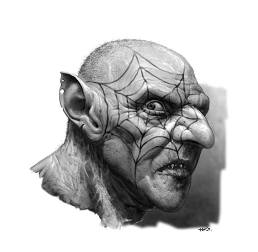
It’s also head and shoulders above a lot of similar Steampunk art books.
Whereas most of this genre are imaginative pastiches of pastiches, essentially by people who once watched “20-zillion leagues under the sea” and perhaps remember “…that film about Rorke’s Drift… was it Black Hawk Down?”, this one is thoroughly plugged into Military History. You get a sense of real regiments, real institutional history, real combat environments — for example he mentions officers in sniper-ridden South Africa being well-advised not to flaunt their officer insignia — and real, often unreliable weapons.
There are, of course, things I would have liked to see done differently.
Atlantis has wonderful illustrations, but I yearned for an actual battle scene. Orc didn’t caption its images, though they usually appeared in context. Since it was so specific in its “historical” references, Steampunk really needed to spell out its alternate history, if only in a timeline.
However, each book is an excellent worked example of fabricated military history, fun to read in its own right, inspiring for a writer, and potential background material for a Games Master, especially, Orc, which would plug into most traditional Fantasy settings.
M Harold Page (www.mharoldpage.com) writes stories with fighting in them. Buy his action-packed Dark Age adventure, Shieldwall: Barbarians! (UK)(US), from Amazon. Learn how to plan and write your novels using his Storyteller Tools: Outline from vision to finished novel without losing the magic. Or just make him happy by locating his salle and letting him teach you Medieval German Longsword.
Get out! Osprey is going fantasy?
More than that. Take a closer look at the Frostgrave game, and tell me what niche YOU think it’s going to occupy.